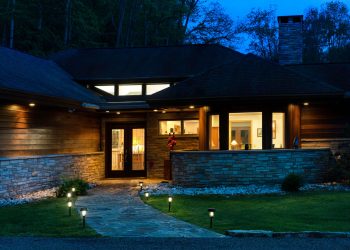An accessory dwelling unit (ADU) is an area that can be used for additional living space, a home office, or another purpose. ADUs have become popular among homeowners who want to have aging parents or adult children live with them, while giving everyone privacy and independence. With people working from home in large numbers due to the pandemic, using an ADU as an office has become an appealing option.
How an Accessory Dwelling Unit Can Be Created
Sometimes homeowners convert an existing space so it can serve a different purpose. For example, an attic, basement, or attached garage can be renovated to serve as a room or suite for an older parent who doesn’t want to move into an assisted living facility, but who needs help with some tasks.
An accessory dwelling unit can also be a stand-alone structure that’s located on the same lot as the main house. A detached garage can be modified, or a new, smaller building can be constructed as a home for a family member or a place to work on a hobby or run a business.
How Your Insurance Needs Might Change with an ADU
The location of your accessory dwelling unit and its purpose will determine the type and amount of insurance coverage you’ll need. If you convert part of your house to create an interior ADU, your existing homeowners insurance policy will most likely cover it. Since an ADU can increase your home’s value, you might need to adjust your coverage limits.
If the ADU is a structure that’s physically separated from the house, it will fall under your homeowners insurance policy’s “other structures” coverage. You may or may not need to adjust your coverage limits.
If you create an accessory dwelling unit that you intend to use to run a home-based business, your existing homeowners insurance policy might not cover it. Homeowners insurance companies place restrictions on coverage for home-based businesses. Equipment that you use to run your business might not be covered, and your homeowners insurance policy’s liability coverage might not apply if someone visits your home to conduct business and gets injured. You might need to take out a separate policy to cover your business.
If you decide to rent out an accessory dwelling unit, you might have to change your insurance coverage or take out a separate landlord policy. Your insurance needs can also depend on whether you rent out the accessory dwelling unit on a long-term or short-term basis.
Contact Your Insurance Company or Agent
Adding an accessory dwelling unit to your property can provide extra space for work or a hobby, let family members enjoy spending time together while maintaining their privacy, or give you an opportunity to earn extra income. Get in touch with your homeowners insurance company or agent to discuss your plans and make sure that you have the right coverage to suit your changing needs.











